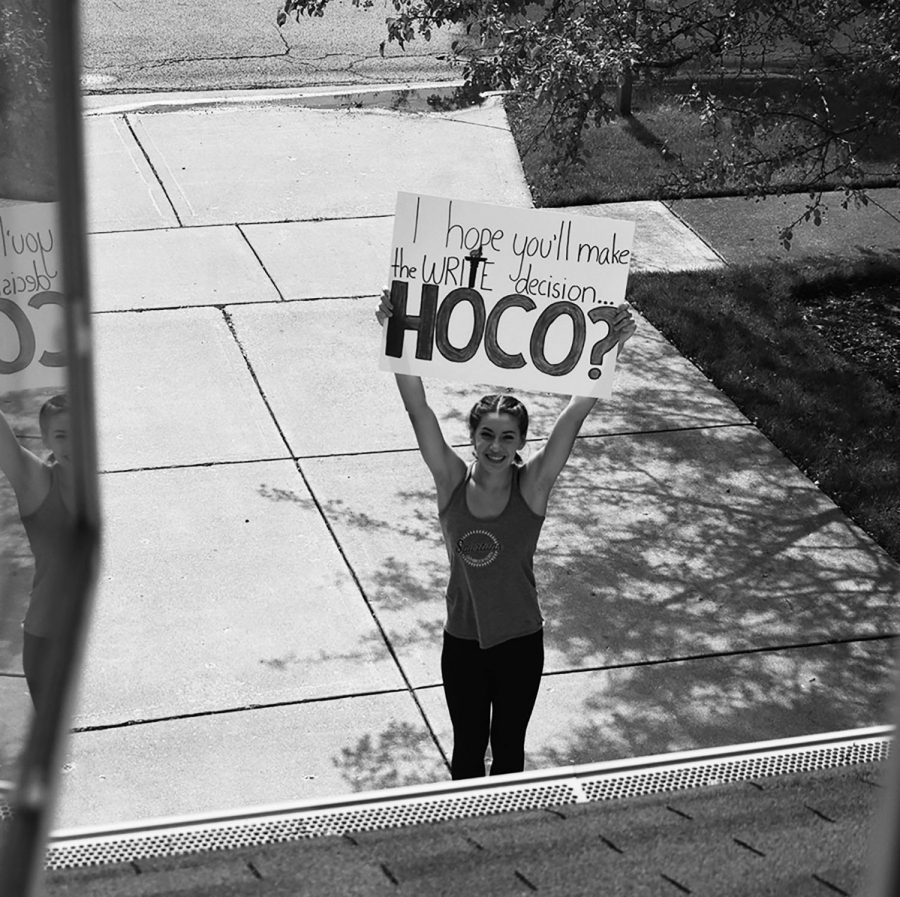Time to embrace the awkward Homecoming ask
In light of the Homecoming dance rapidly approaching, allow me to recount a story I once heard. The series of events that follow are all true, but names have been changed to protect the identity of those involved. Allow me to introduce our protagonist: a perfectly normal, awkward teenage boy. Let’s call him Joe.
It was a typical Saturday night long before the days of smartphones, and Joe was at a party with friends. The Homecoming dance would be upon them in a matter of weeks and Joe still did not have a date, so he approached his friend, Kathy, and asked her. Kathy laughed and said, “Yeah, sure,” much to Joe’s relief.
A few days later, Joe called Kathy on the telephone to discuss the details of the dance. Then, Joe’s stomach dropped to his feet when Kathy said, “Oh, I thought you were joking.”
Nowadays, you may have trouble finding someone who has an embarrassing “Homecoming ask” story to tell. Most students follow a short process to ensure as little awkwardness as possible. Someone will send a casual text or Snapchat to a potential date asking him or her to the dance. If that person agrees, the asker makes a poster and delivers it to his or her date. This becomes the “formal ask.” If the potential date declines, the asker sets the phone down with a sigh and moves on.
Advancement in technology means we spend more of our lives with our phones glued to our hands and our eyes to our phones. But in being so reliant on texting and social media to communicate with other people, we forget how important face-to-face interactions are. As teenagers, we are still learning how to master these interactions and the only way we can become more confident and less awkward in them is by practicing. The only way to practice is by putting aside our fear of awkward and uncomfortable experiences. We can’t do that through a phone.
So what happens if the person you ask says no? When you ask someone to Homecoming in a text, there’s nothing at stake. It’s a bit harder to be embarrassed when you’re sitting alone on your bed, shielded by your phone rather than face-to-face with someone. But being rejected in person allows you to learn how to deal with genuine, hard-hitting rejection. We need to learn that now, with something trivial like asking someone to Homecoming, so we’re not so afraid of rejection down the line. In real-life situations that cannot be conducted through texting, such as job interviews, that makes all the difference. People can tell whether you’re terrified of being rejected, or confident because you know no matter the outcome, you’ll be able to accept it and move on.
But if that person says yes? Asking someone in person makes it so much more, well, personal. People would appreciate the ask that much more, acknowledging the fact that you had the guts to ask them in person.
Even after the most painfully awkward experience, life goes on. Decades later, Joe is probably looking back at his cringe-worthy encounter and laughing, remembering how awkward he was and considering how much he has grown since.
There’s no denying our phones have countless benefits and purposes, from learning and entertainment to news and navigation. But when they hinder our social interactions, we need to take a step away. We can start with something simple such as pulling someone aside and asking them a single question. “Will you go to Homecoming with me?”


